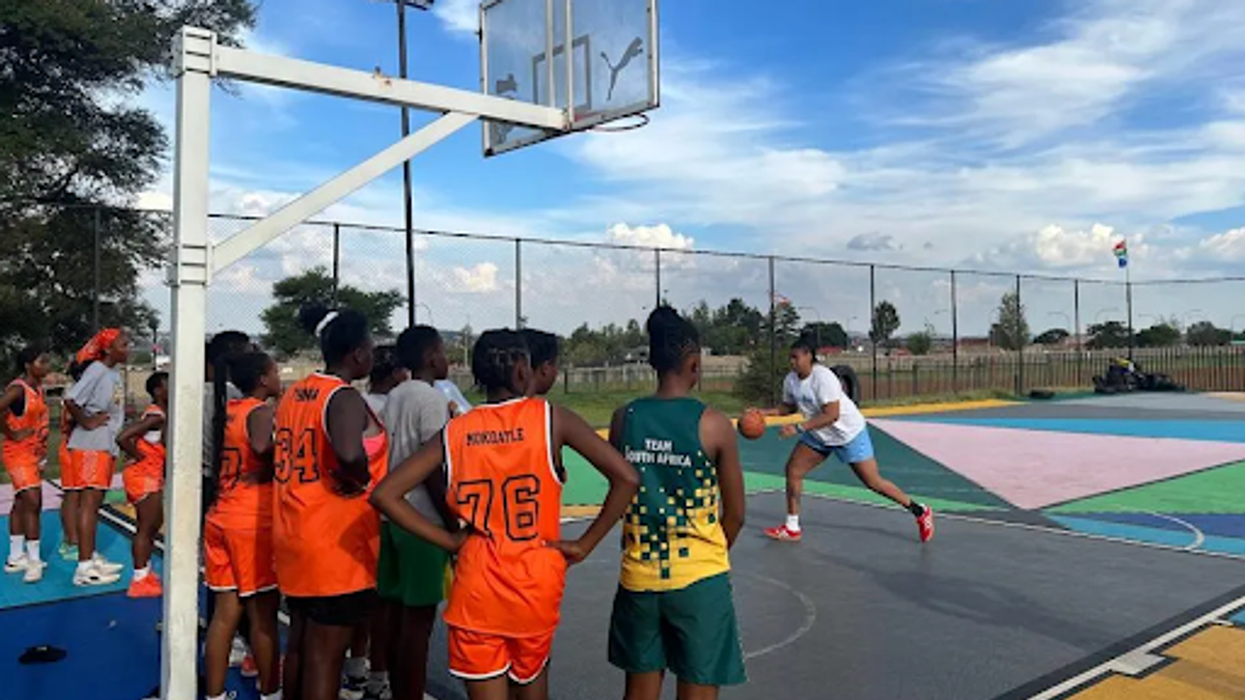Paquette, a member of Tufts University’s women’s basketball team, is a participant in the Engaged Athlete Fellowship program, which is run by The Team in conjunction with the Bridge Alliance Education Fund, publisher of The Fulcrum.
Civic engagement and leadership means identifying issues in our community, and engaging with those around you to find solutions. It is difficult yet important work.
All of this was reinforced for me when I had the opportunity to travel back to South Africa with my father. This trip gave me the opportunity to step out of my own context and see a brand new perspective, one that reaffirmed my purpose around civic engagement.
Throughout the trip, we saw what civic engagement could look like. We ventured to museums like the Apartheid Museum and the Hector Pieterson Museum where I saw the aggression of the apartheid regime and the perseverance of protestors. It was there where I learned about triumphant leaders, like Steve Biko and Desmond Tutu, who fought tirelessly for the rights of their people and the privilege to keep their land.
I was consumed by the legacy of Nelson Mandela, the first Black president of South Africa, who also served 27 years in prison for fighting for his freedom and mobilizing his people. Many would think Mandela’s heart would have turned cold by the time he left prison, but he had faith in humanity that many could not see. He was solely focused on empowering people through truth, reconciliation and liberation. Mandela was heavily influenced by the Zulu proverb of Ubuntu — “I am because you are. My humanity is tied to yours.” He led with this mindset, influencing the country and creating a lasting cultural impact.
His legacy is a lesson of leadership that I find myself carrying as I embark on my own civic journey.
I became further inspired when my father and I spent several days connecting with the Kliptown Youth Program, The Comeback Mission in El Dorado Park and Soweto Basketball Academy, which are all youth community organizations in some of the toughest parts of Soweto (South Western Township), which itself is located in Johannesburg. While visiting, I ran basketball clinics for the kids and was blown away by the community that was fostered in such a short time.
The youth in these communities are products of the resilience and determination of the ones who came before them. Furthermore, they instilled in me that being a part of a community, and empowering the ones around you through joy and care, is necessary for change in one’s community and the world.
I realized that the orange ball that you throw countless times through a hoop has the power to change the world.
Basketball became more than just repeating different moves and countermoves and working on shooting mechanics. It became a process of learning and understanding one another. We are all connected and deeply rooted in each other’s histories and experiences. There was an acknowledgment that we were all from different places, but on the basketball court, we were one team, one community. Playing together, learning and teaching one another, empowered us all.
The lessons I learned during my time in South Africa inspired me to bring a project back to my own community in Medford, Mass., through my fellowship with The Team. Through my project, Community Hoops, I aspire to create pockets of community that are brought together through basketball and art. They are spaces of celebration and empowerment that are fueled by collective passion of self-expression. I am all the more excited to launch a Community Hoops Camp to form relationships between the extraordinary Tufts basketball players and promising youth in the community. Mentorship — both being a mentor and a mentee — are instrumental in building a generation of empowered student-athletes. All it takes is one coach, one moment to change a young athlete’s life.
The camp will connect to the second component of the effort, The 94 Foot Project. We will be collaborating with Artists for Humanity, a local nonprofit organization that also focuses on the power of mentorship. Together, we will revitalize an outdoor public basketball court in Medford, creating a beacon for community building in the area. The mission of Community Hoops is rooted in the power of sport and the power of the collective, allowing youth to not only endure, but to also thrive through self-expression and community.
As I have learned from Nelson Mandela and the children of Soweto, it is important to believe in the collective. Our humanity is bound together in this life — we must choose to lift up everyone around us, to love and care for one another, in whatever way we know how. Through my civic journey, I have reaffirmed that basketball is my tool to change the world. What’s yours?




















